Can Stress Cause Hair Loss? How To Control And Treat It
Understand the stress-hair loss connection and explore strategies for healthier hair growth
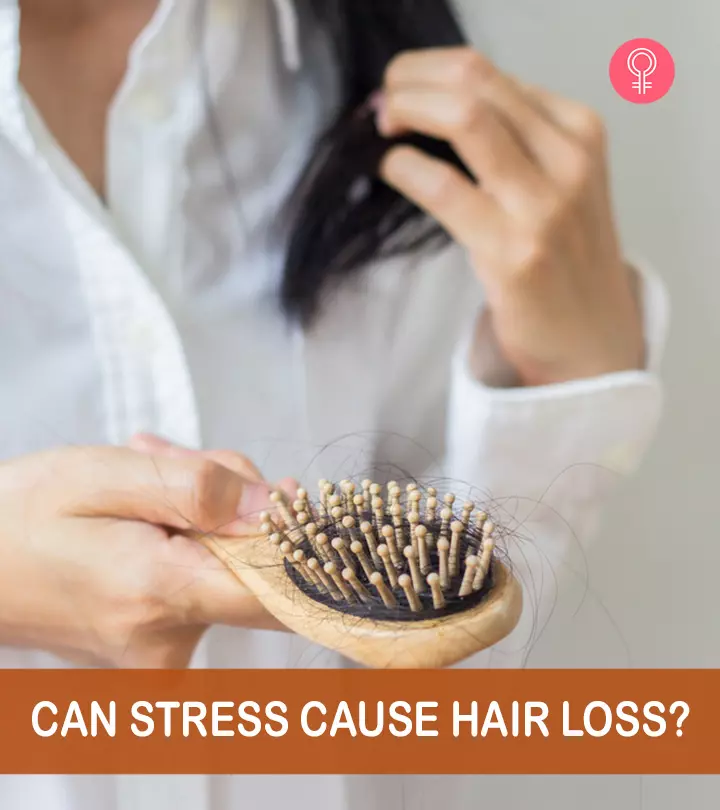
Image: ShutterStock
The verdict is in – stress causes hair loss. How, you ask? Well, science explains that our body contains stress hormones that impact the development of hair follicles (1). Stress-related hair loss, if left untreated, may even lead to telogen effluvium, alopecia, and baldness.

But don’t panic; there is a silver lining! Stress-induced hair loss is completely reversible (2).Controlling your stress levels and finding ways to relieve stress can improve your hair health. Keep reading to learn how to relieve your stress and enhance your hair health as a consequence.
In This Article
How Can Stress Cause Hair Loss?
In a survey of 2,090 US adults, participants were asked how they felt about stress in their life. The responses showed that 29% believed their life was less stressful than the average, 23% believed their life was more stressful than others, 38% felt their life was equally stressful as others, and 10% were uncertain about it.
Stress is pervasive and can impact various aspects of our well-being, including our body, health, skin, and hair.
Hair follicle development is a cyclic activity. It is broadly divided into phases that show
growth and hair formation (anagen), senescence/shrinkage (catagen), and dormant/resting (telogen).
Several growth factors govern the transition of hair follicles between these phases. The latest research suggests that molecules produced during stress response (stressors) also affect the hair follicle development. These molecules either directly interfere or interact with the governing growth factors and impede the smooth transition (1).
When your body is under stress, there are chances that the stressors push hair follicles into the telogen or catagen phase. They may also alter the gene expression in the hair stem cells. As a result, the hair shafts show poor anchorage, low protein (keratin) levels, or stunted growth in the hair fibers. Such situations ultimately cause excessive hair fall, thinning, balding, loss of pigmentation, and scalp disorders (1).
Although researchers are exploring the relationship between stress and hair growth, a few studies link a few prevalent hair fall disorders to stress levels.
Key Takeaways
- Trichotillomania is a psychiatric condition in which the person has a strong urge to pull hair from the scalp, eyebrows, eyelids.
- An increase in protein intake can control stress-related hair loss.
- Biotin supplements under medical guidance can rejuvenate the scalp and hair follicles.
Types Of Hair Loss Linked To Stress
- Telogen effluvium (TE): This form of hair loss happens 2-3 months after your body has undergone significant stress caused by prolonged illness, major surgery, chemotherapy, or a severe infection. TE can also occur after a sudden change in the hormone levels, especially in women after childbirth. Hair thinning is one of the symptoms of TE. You will experience significant hair fall from all parts of the scalp. However, large bald spots are rare (1).
- Alopecia areata: In this condition, the hair falls out in small patches on the scalp(1). This is an autoimmune disease, and the causes are unknown. It can be associated with vitiligo, thyroid, atopy, asthma, and Down syndrome. It is also seen in patients with cancer who take a drug called nivolumab (3).
- Trichotillomania: This is more of a psychiatric condition in which the person has a strong urge to pull hair from the scalp, eyebrows, eyelids, and other areas despite repeated attempts to stop hair pulling. Trichotillomania is linked to emotional and psychiatric stress, anxiety, and depression (4).
Other than stress, physiological, genetic, environmental, and other factors can affect hair growth. However, the symptoms may not be the same for all. Check out the next section to learn more.
Symptoms Of Hair Loss Due To Stress
Telogen Effluvium (TE):
- Initially noticed as thinning of hair on the scalp.
- Thinning might be localized or spread across different areas.
- Predominantly affects the top of the scalp.
- Rarely leads to receding hairline or total hair loss.
Alopecia Areata:
- Sudden hair loss, often starting as a round or oval bald patch on the scalp or beard.
- Hair loss can occur on any part of the body.
- Potential loss of eyebrows, eyelashes, and nostril hair and leg hair.
- Associated symptoms may include changes in nails, itching, tingling, or burning sensations.
Trichotillomania
:
- Recurrent urge to pull out one’s hair from the scalp, eyebrows, or eyelashes.
- Visible signs of hair loss, such as shortened or thinned areas.
- Accompanied by nail biting, skin-picking, and chewing or eating pulled-out hair.
 Pro Tip
Pro TipThe question is – will the hair grow back in the bald patches? Is stress-induced hair loss permanent? Keep reading to find out.
No, it is generally not. In disorders like telogen effluvium, hair loss can last for two or more months, and the hair may regrow in 3-6 months (5). Alopecia also shows signs of regrowth in bald patches within 6-12 months. However, there is no treatment for this condition, and new bald patches may develop (6). When the factors inducing stress are eliminated, trichotillomania cases show improvement. Habit Reversal Training and other behavioral therapy can help in this regard (7).
In some types of hair loss, the hair follicle is scarred or damaged, minimizing the chances of hair regrowth. Heredity and not addressing hormonal disturbances can further lower the chances of regrowth. However, research indicates that hair regrowth is possible when stressors are removed or managed in most stress-related hair loss (3).
How do you deal with hair loss? Find out next.
- Stay away from known stress triggers.
- Increase your protein intake. Add plant and animal sources of protein to your diet.
- Switch to a medicated anti-dandruff shampoo.
- Use gentle hair care and styling products. Keep a check on the water quality.
- Treat scalp infections immediately. They may aggravate hair loss if left untreated.
- Practice meditation and relaxation techniques to bring down anxiety.
- Keep your dermatologist informed about excessive hair fall in the initial stages. This makes treatment easier and effective.
- Be patient. Hair grows only half an inch every month.
Stress-related hair loss is not a life-threatening condition. But you are left with very few treatment options when you realize the damage because it is asymptomatic.
- Biotin supplements under medical guidance can rejuvenate the scalp and hair follicles.
- Over-the-counter drugs like minoxidil prescribed by dermatologists can control hair shedding.
- Multivitamins, particularly zinc and selenium, replenish nutrients in hair fibers.
- Using products with natural stress relievers (adaptogens) with no preservatives can be another option.
- Blood examinations may be required to identify and mitigate infections and autoimmune diseases.
- Keratin restoration treatment may temporarily strengthen the hair.
- Regular exercise improves overall blood circulation and stress tolerance.
- Correcting the sleep-wake cycle and eating habits can also help promote hair regrowth.
 Pro Tip
Pro TipIn this article, we have established (with scientific backing) that stress causes hair loss, but it is reversible with treatment. However, there is no perfect one-size-fits-all solution for hair loss. The key is to find the main trigger for your hair loss. There are a few different types of hair loss. Some acute hair loss conditions, like telogen effluvium, could be caused by drugs or stress. But in other cases regarding genetic disorders, like trichotillomania, there is minimal hair regrowth.
If you notice heavy hair fall, consult a doctor for a thorough diagnosis and viable treatment options. You will need to try multiple hair loss treatments to see some recovery. And it will require patience, time, and consistency. But with the right treatments, you will see improvement.
Frequently Asked Questions
Can emotional stress and physical stress both cause hair loss?
Yes. Both emotional and physical stress may contribute to hair loss. Factors such as chronic anxiety, major life events, intense exercise, illness, or physical trauma may trigger your body’s stress response and lead to the release of high levels of stress hormones. This may disrupt the hair growth cycle, leading to conditions like telogen effluvium and alopecia areata.
Does stress affect all hair types equally?
Yes. Stress affects all hair types equally. However, it may be more apparent in people with fine or thin hair, as the strands are thinner and make the scalp more visible.
Get effective tips on managing hair loss caused by stress. Discover practical strategies to alleviate stress and promote hair health from the video below. Check out the video and empower yourself to navigate this common concern with confidence.
References
Articles on StyleCraze are backed by verified information from peer-reviewed and academic research papers, reputed organizations, research institutions, and medical associations to ensure accuracy and relevance. Read our editorial policy to learn more.
- Stress and the Hair Follicle
https://www.ncbi.nlm.nih.gov/pmc/articles/PMC1868107/ - Hair and stress: A pilot study of hair and cytokine balance alteration in healthy young women under major exam stress
https://www.ncbi.nlm.nih.gov/pmc/articles/PMC5397031/ - An Overview of Alopecias
https://www.ncbi.nlm.nih.gov/pmc/articles/PMC3935391/ - Burden of Hair Loss: Stress and the Underestimated Psychosocial Impact of Telogen Effluvium and Androgenetic Alopecia
https://www.jidonline.org/article/S0022-202X(15)30963-5/fulltext - Telogen Effluvium: A Review,
https://www.ncbi.nlm.nih.gov/pmc/articles/PMC4606321/ - Alopecia Areata: Review of Epidemiology, Clinical Features, Pathogenesis, and New Treatment Options,
https://www.ncbi.nlm.nih.gov/pmc/articles/PMC5939003/ - Habit Reversal Training for Trichotillomania,
https://www.ncbi.nlm.nih.gov/pmc/articles/PMC3358939/ - Complementary Strategies to Promote Hair Regrowth in Post-COVID-19 Telogen Effluvium,
https://www.ncbi.nlm.nih.gov/pmc/articles/PMC9042074/
Read full bio of Dr. Shruti Chavan
Read full bio of Arshiya Syeda
Read full bio of Anjali Sayee
Read full bio of Monomita Chakraborty





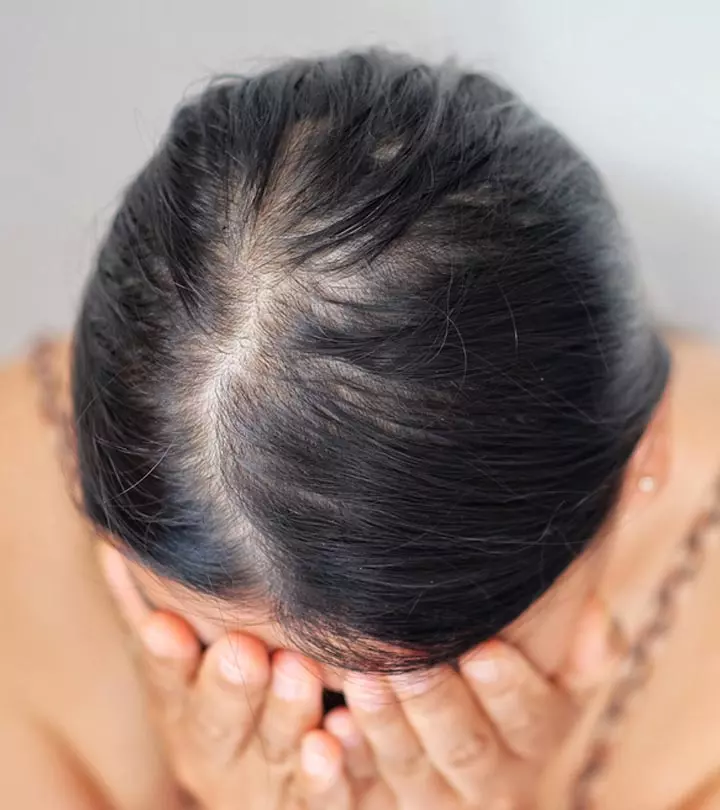
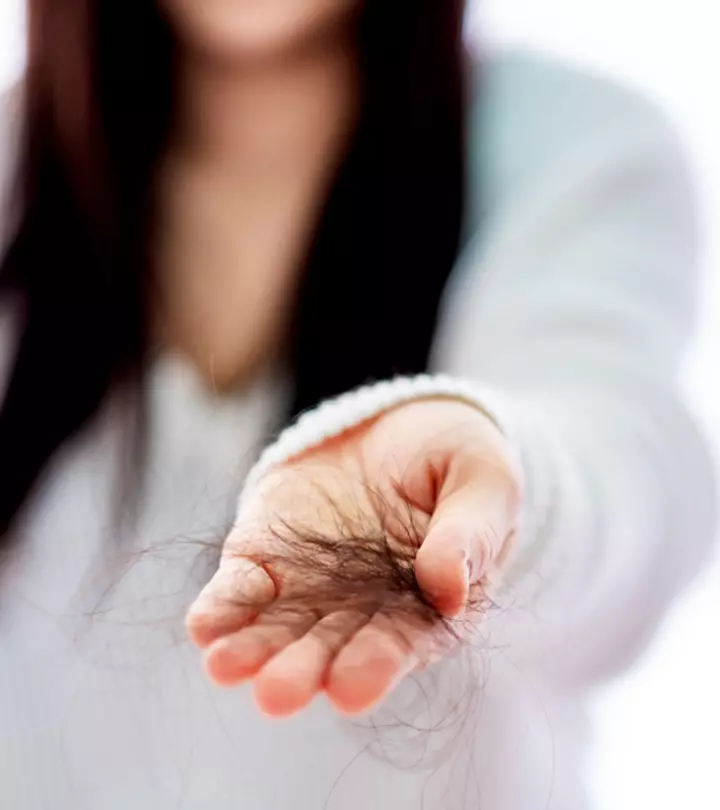
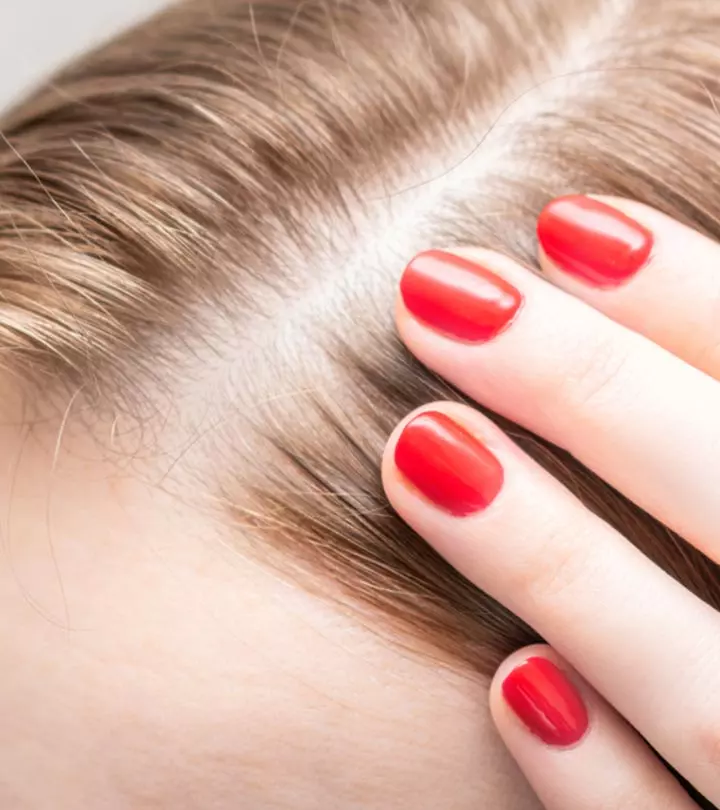
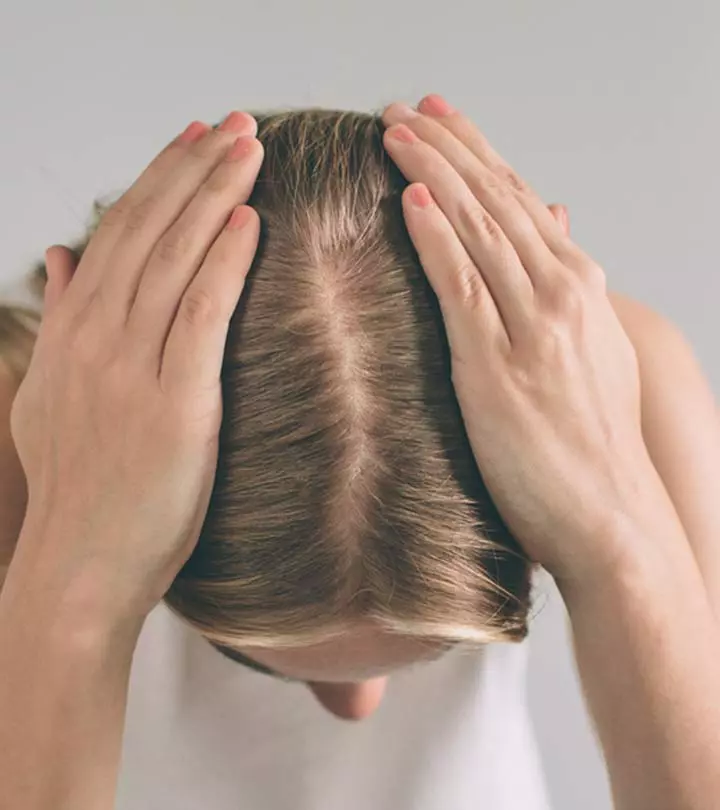
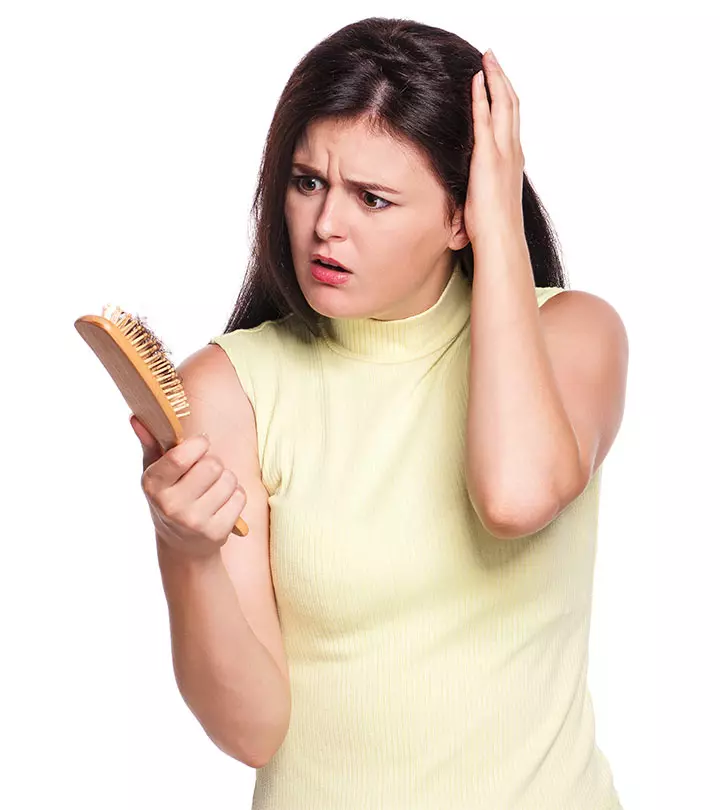
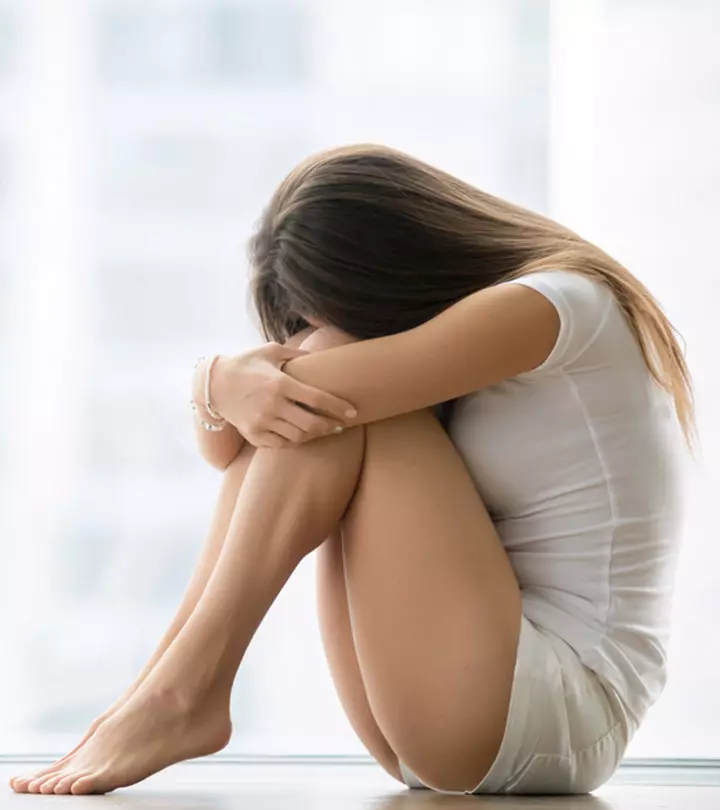
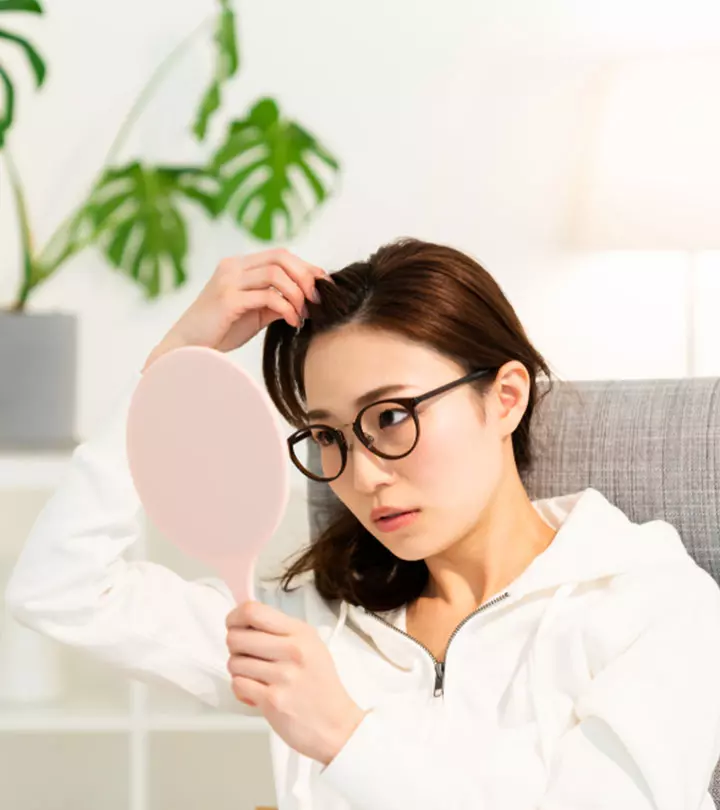
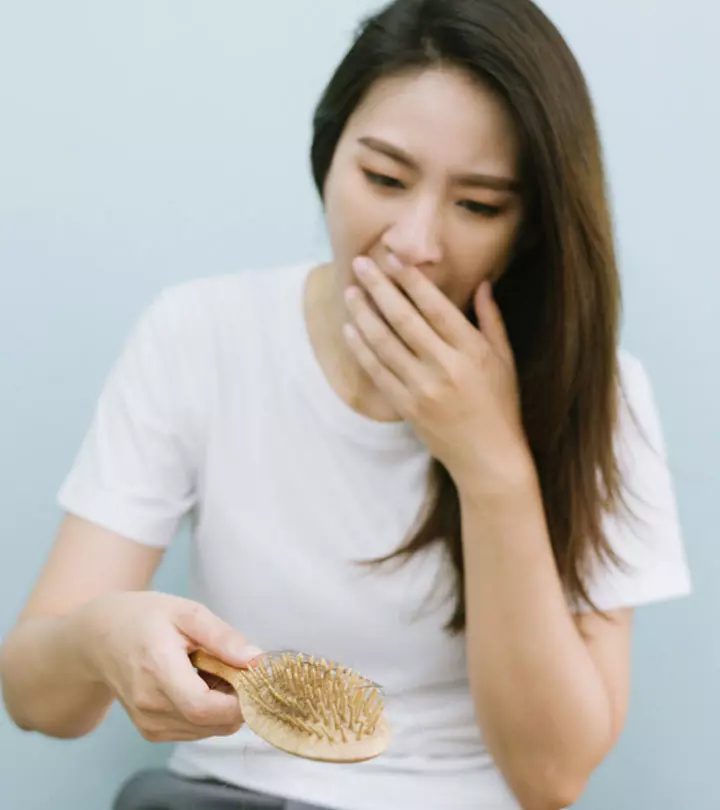
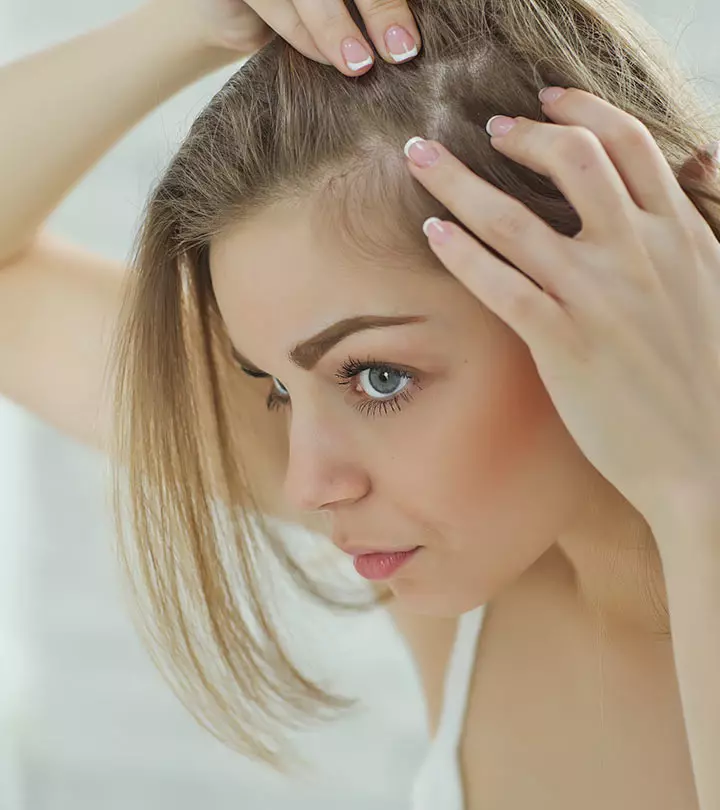

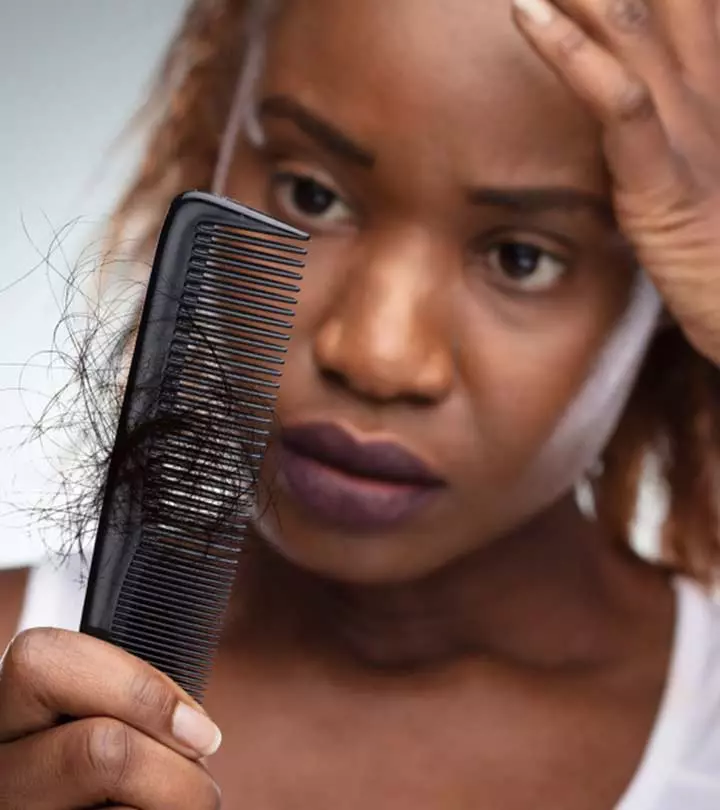
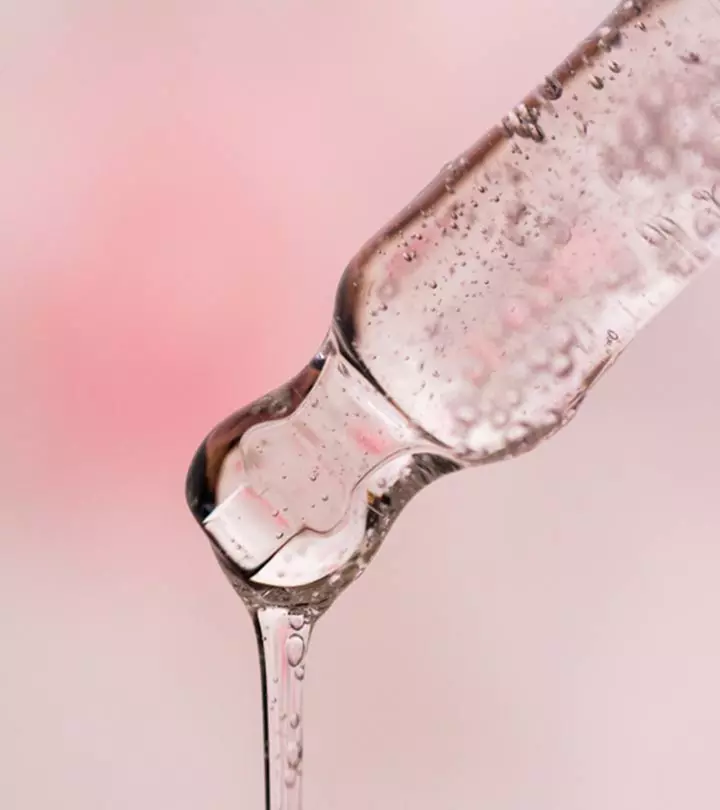



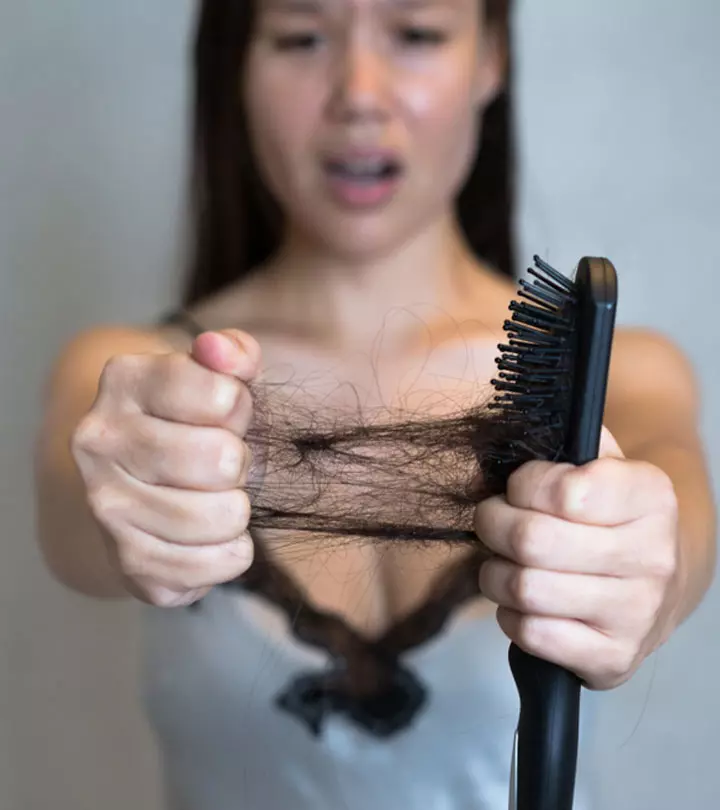



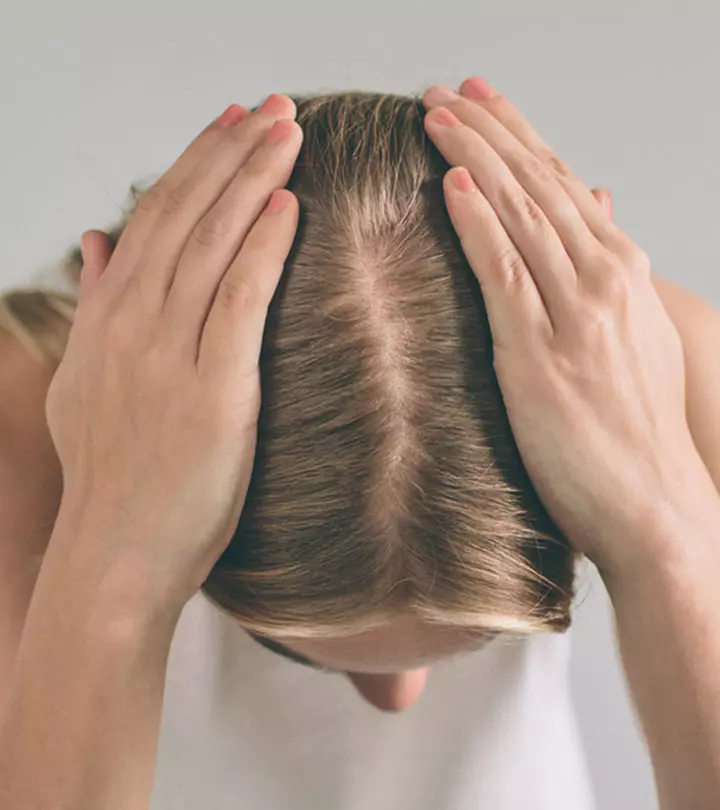


Community Experiences
Join the conversation and become a part of our empowering community! Share your stories, experiences, and insights to connect with other beauty, lifestyle, and health enthusiasts.